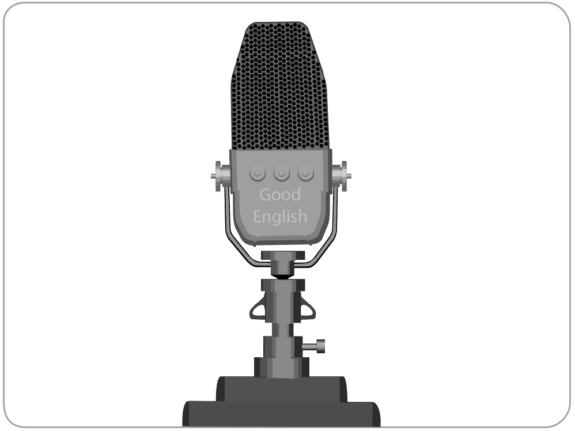
Good English
No such thing?
One problem is that nobody quite knows what it is.
Whatever variety of the language someone has in mind, either as an ideal or as something to be disparaged and avoided, its grammar is enormously complex and subtle.
The grammar of ‘non-standard’ varieties of English have not been deeply explored. One of the rare instances of such an exploration was by Alison Henry of her own native variety of Belfast English. The divergences were deeper than she had expected. There is no reason to think that the same does not hold for the hundreds or thousands of completely unexplored varieties.
One of the things which makes learning to talk so hard is that the evidence that children get, what is known as ‘the primary linguistic input’, is not good evidence. Only some sentences are finished. Many are unfinished. Of course, the child does not know which is which.
The language is also constantly changing. During the 19th aand 20th centuries, there were huge waves of immigration, of refugees from the famine in Ireland, of Yiddish speaking refugees from the extreme anti-semitic violence in the old Czarist empire of Russia and then Nazi Germany, and later from the Caribbean, the Indian sub-continent, and Africa, all bringing new languages and varieties of English. Even in white British families, children would hear subtly different varieties of the language from parents and grandparents.
Going further back in history, in the 14th century, between a third and a half of the population died of plague. Nobody realised at the time, but it was actually borne by rats. Among the surivors there were new opportunities for those with then least privileges. They may have spoken an English with more of the long dead Celtic from before the Anglo-Saxon take over 900 years earlier, saying the Celtic road rather than the Romance street, as refected in the complete absence of any roads in the City of London. If there was such a substratal English, its speakers could free themselves from their bondage and living conditions from those of animals, and make better lives for themselves. What is certain is that over the next 200 years, English changed profoundly both in its pronunciation and in its grammar. By the time of Shakespeare, there was a new way of asking questions “Do you read?” rather than the older “Read you?”
What children hear from older siblings may be a new English, mixing the English of older adults with linguistic characters of a completely different language spoken at home.
But by three, most children can, and do, say things which have never been said before in the whole of human history.
By three and a half, most chidren are understood most of the time by people who do not know them.

